April 15 stands as one of history’s most eventful days, witnessing the rise and fall of empires, groundbreaking discoveries, and moments that shaped our modern world across centuries of human achievement.

Politics and Government Events on April 15
1922 – Teapot Dome Scandal Investigation Begins
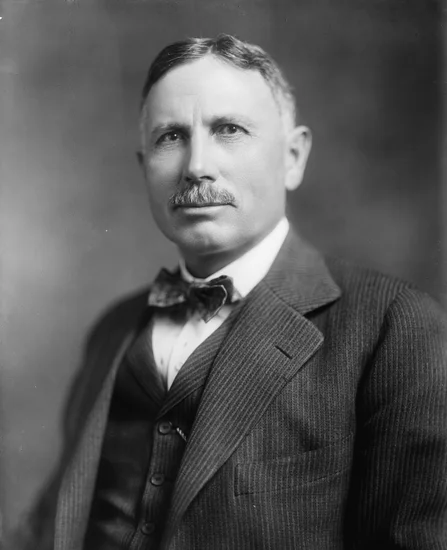
Senator John B. Kendrick of Wyoming introduced a resolution calling for investigation of secret land deals involving government oil reserves. His legislative action exposed widespread corruption in the Harding administration’s handling of federal petroleum resources.
The resulting scandal became one of the most notorious political corruption cases in American history. Government officials had illegally leased naval oil reserves to private companies in exchange for personal financial gain.
1960 – Student Nonviolent Coordinating Committee Founded
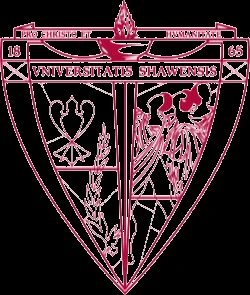
Civil rights leader Ella Baker organized a pivotal conference at Shaw University in Raleigh, North Carolina. Her leadership directly resulted in the creation of the Student Nonviolent Coordinating Committee.
The organization became instrumental in advancing civil rights throughout the tumultuous 1960s. Young activists used SNCC as their primary vehicle for organizing protests, voter registration drives, and freedom rides across the segregated South.
1989 – Tiananmen Square Protests Begin
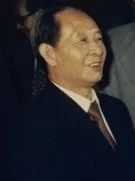
The death of reformist leader Hu Yaobang triggered massive pro-democracy demonstrations in Beijing’s Tiananmen Square. Students initially gathered to mourn the former Communist Party General Secretary who had championed political liberalization.
Their peaceful memorial quickly evolved into broader demands for democratic reforms and government accountability. The demonstrations would ultimately grow to include millions of participants before ending in violent suppression two months later.
1994 – World Trade Organization Founded
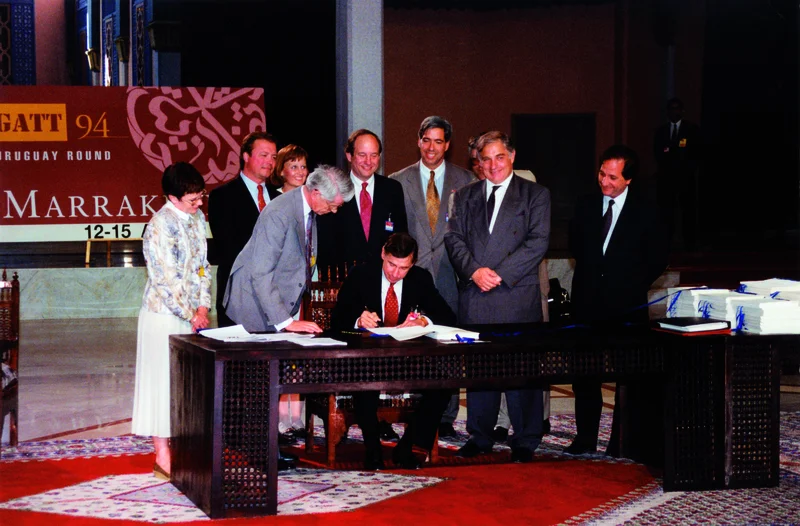
The Marrakesh Agreement established the World Trade Organization, fundamentally restructuring global commerce and trade relations. Representatives from 123 countries signed the comprehensive treaty creating the most powerful international trade institution in history.
The WTO replaced the General Agreement on Tariffs and Trade with expanded authority over global trade disputes. Member nations agreed to binding arbitration procedures and standardized trade regulations affecting billions of people worldwide.
Military and Naval History on April 15
1941 – Belfast Blitz Devastates Northern Ireland
German Luftwaffe bombers launched a massive aerial assault on Belfast, deploying 200 aircraft in coordinated nighttime raids. The devastating attack killed approximately 1,000 civilians and destroyed vast sections of the industrial city.
The bombing campaign targeted shipyards, aircraft factories, and residential neighborhoods with unprecedented ferocity. Belfast’s limited air defenses proved inadequate against the sustained German offensive, leaving the population largely defenseless against the aerial bombardment.
1942 – Malta Receives George Cross
King George VI awarded the George Cross “to the island fortress of Malta” in recognition of extraordinary civilian courage under siege. The Mediterranean island had endured relentless Axis bombing while serving as a crucial Allied naval base.
Malta’s strategic position made it essential for controlling Mediterranean shipping lanes and supporting North African operations. The civilian population demonstrated remarkable resilience despite severe food shortages, constant air raids, and widespread destruction of infrastructure.
1945 – Bergen-Belsen Concentration Camp Liberated
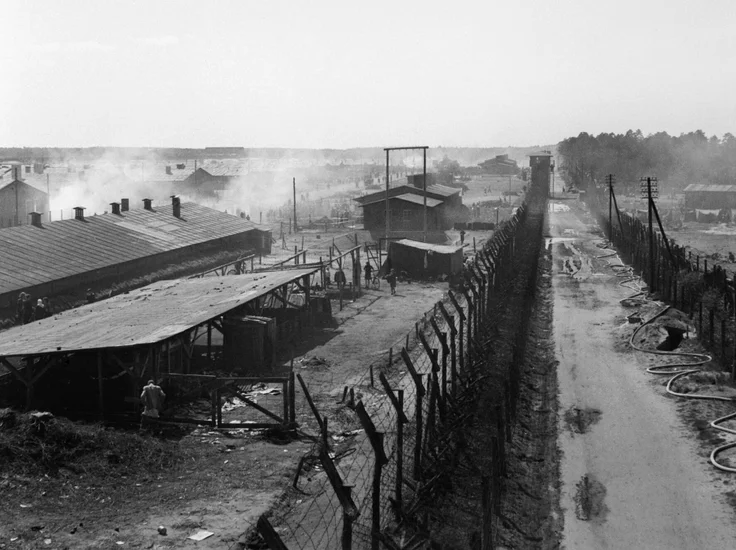
Allied forces liberated the Bergen-Belsen concentration camp, exposing the full horror of Nazi genocide to the world. British troops discovered approximately 60,000 prisoners in appalling conditions, with thousands of unburied corpses throughout the facility.
The liberation revealed evidence of systematic starvation, disease, and murder that shocked even experienced military personnel. Survivors included Anne Frank’s sister Margot, though Anne herself had perished just weeks before liberation.
1969 – North Korea Shoots Down U.S. Navy Aircraft
North Korean forces shot down a United States Navy EC-121 reconnaissance aircraft over the Sea of Japan, killing all 31 crew members aboard. The incident represented the deadliest attack on U.S. military personnel by North Korea since the Korean War armistice.
The aircraft was conducting routine electronic surveillance operations in international airspace when intercepted by North Korean fighters. President Nixon faced intense pressure to respond militarily but ultimately chose diplomatic protests over military retaliation.
Science and Discovery Milestones on April 15
1923 – Insulin Becomes Generally Available
Medical researchers made insulin widely available for treating diabetes, revolutionizing care for millions of patients worldwide. The breakthrough represented culmination of intensive research following Frederick Banting and Charles Best’s initial discovery.
Diabetic patients who previously faced certain death could now manage their condition effectively with regular insulin injections. The treatment transformed diabetes from a fatal diagnosis into a manageable chronic condition, saving countless lives globally.
1952 – Boeing B-52 Stratofortress First Flight
The Boeing B-52 Stratofortress completed its maiden flight, introducing the world’s most influential strategic bomber aircraft. The massive eight-engine jet demonstrated unprecedented range, payload capacity, and technological sophistication for military aviation.
The aircraft became the backbone of American strategic nuclear deterrence throughout the Cold War era. Its remarkable design longevity has kept B-52s in active service for over seven decades, with planned operations continuing into the 2050s.
1986 – Operation El Dorado Canyon Launched
The United States launched coordinated bombing raids against Libyan targets in response to terrorist attacks on American servicemen in West Germany. The precision strikes targeted military installations and suspected terrorist training facilities using advanced F-111 fighter-bombers.
The operation demonstrated America’s capability to project military power globally while sending a clear message about consequences for state-sponsored terrorism. The raids sparked international debate about preemptive military action and appropriate responses to terrorism.
Cultural and Arts Events on April 15
2019 – Notre-Dame Cathedral Fire

A devastating fire engulfed the Notre-Dame Cathedral in Paris, causing extensive damage to the iconic Gothic masterpiece. The blaze destroyed the cathedral’s spire and roof while threatening priceless artifacts and architectural treasures dating back centuries.
Firefighters worked through the night to save the main structure and prevent complete collapse of the historic building. The disaster prompted immediate pledges of over one billion euros for restoration efforts from donors worldwide.
1920 – Sacco and Vanzetti Robbery
Two security guards were murdered during a payroll robbery in South Braintree, Massachusetts, leading to one of America’s most controversial criminal cases. Italian immigrants Nicola Sacco and Bartolomeo Vanzetti were subsequently arrested and charged with the crimes.
Their trial became a focal point for debates about immigrant rights, political radicalism, and judicial fairness in 1920s America. Despite worldwide protests and appeals, both men were executed in 1927, maintaining their innocence until death.
1923 – Sacramento School Arson Attack
A racially motivated arsonist set fire to the Nihon Shōgakkō (Japanese school) in Sacramento, California, killing ten children. The attack represented escalating anti-Asian sentiment and violence in Depression-era America.
The tragedy highlighted the vulnerable position of Japanese-American communities facing systematic discrimination and hostility. The perpetrator’s actions reflected broader patterns of racial violence that would culminate in Japanese-American internment during World War II.
Religious and Social Events on April 15
1936 – Arab Revolt Begins in Palestine
The Arab revolt against British rule and Jewish immigration commenced in Mandatory Palestine, marking the beginning of sustained resistance to colonial administration. Palestinian Arabs organized strikes, protests, and armed resistance against British policies favoring Jewish settlement.
The uprising reflected growing frustration with British promises to both Arab and Jewish communities that appeared mutually incompatible. The revolt would continue for three years, resulting in thousands of casualties and fundamentally altering the region’s political landscape.
1947 – Jackie Robinson Breaks Baseball’s Color Barrier

Jackie Robinson made his Major League Baseball debut with the Brooklyn Dodgers, becoming the first African American player in the modern era. His courageous entry into professional baseball challenged decades of racial segregation in America’s national pastime.
Robinson faced intense racial hostility from fans, opponents, and even some teammates while maintaining exceptional athletic performance. His success opened doors for other African American athletes and became a catalyst for broader civil rights progress.
1970 – Cambodian Civil War Massacre
During the Cambodian Civil War, systematic massacres of Vietnamese minorities resulted in 800 bodies floating down the Mekong River into South Vietnam. The ethnic cleansing campaign targeted Vietnamese civilians living in Cambodia for generations.
The killings represented escalating violence as the Cambodian conflict intensified following the American invasion. The massacre foreshadowed even greater atrocities that would occur under the Khmer Rouge regime later in the decade.
Business and Economic Events on April 15
1955 – McDonald’s First Franchised Restaurant Opens
Ray Kroc opened the first franchised McDonald’s restaurant in Des Plaines, Illinois, launching the modern fast-food industry. His systematic approach to standardization, efficiency, and rapid expansion revolutionized American dining habits and business practices.
The restaurant’s success established the template for franchise operations that would spread globally within decades. McDonald’s became synonymous with American consumer culture and economic influence worldwide, serving billions of customers annually.
2013 – Boston Marathon Bombing
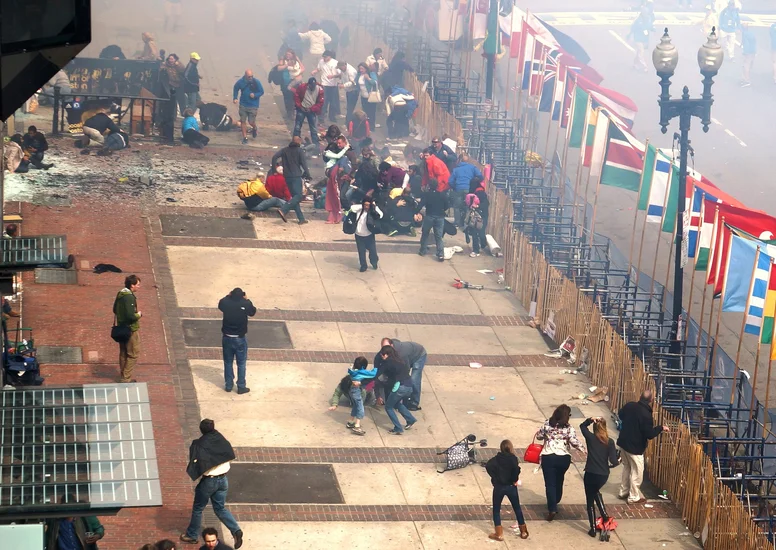
Two bombs exploded near the finish line of the Boston Marathon, killing three people and injuring over 500 others. The terrorist attack targeted one of America’s most prestigious sporting events, shocking the nation and disrupting normal commercial activity.
The bombing prompted massive law enforcement response and a city-wide manhunt that paralyzed Boston’s economy for days. The attack highlighted vulnerabilities in public event security and led to enhanced protective measures at major gatherings nationwide.
2024 – FedEx Facility Mass Shooting
A gunman opened fire at a FedEx Ground facility in Indianapolis, Indiana, killing nine people and injuring seven others. The workplace violence incident disrupted operations at the major shipping hub and raised concerns about employee safety protocols.
The shooting occurred during a period of increased workplace violence across America, prompting companies to reassess security measures. The attack particularly impacted the Sikh community, as several victims were members of the local Sikh population.
Transportation and Infrastructure on April 15
1912 – RMS Titanic Sinks
The British passenger liner RMS Titanic sank in the North Atlantic Ocean at 2:20 AM, two hours and forty minutes after striking an iceberg. Only 710 of 2,224 passengers and crew survived the disaster, making it one of the deadliest peacetime maritime accidents in history.
The “unsinkable” ship’s tragic fate exposed critical flaws in safety regulations, lifeboat capacity, and emergency procedures. The disaster prompted immediate international reforms in maritime safety standards and wireless communication requirements that continue today.
2002 – Air China Flight 129 Crashes
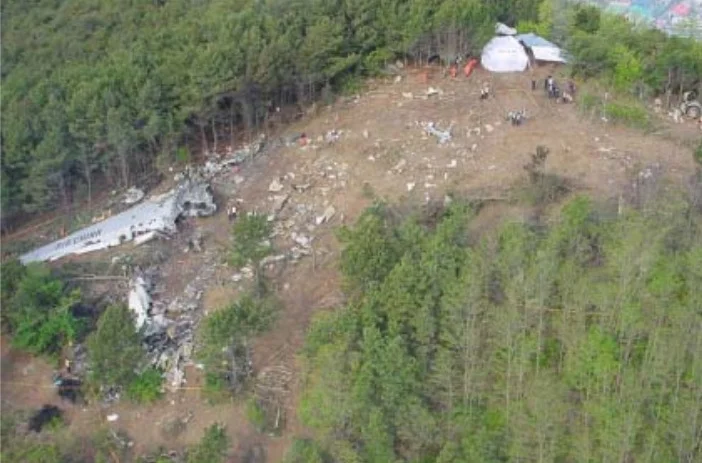
Air China Flight 129 crashed during approach to Gimhae International Airport in Busan, South Korea, killing 129 of 166 people aboard. The Boeing 767 encountered severe weather conditions and crashed into a forested hillside while attempting to land.
The accident became one of the deadliest aviation disasters in South Korean history and prompted enhanced safety protocols. Investigation revealed communication problems between the flight crew and air traffic control during the challenging weather conditions.
1989 – Hillsborough Stadium Disaster

A human crush occurred at Hillsborough Stadium during the FA Cup Semi-final between Liverpool and Nottingham Forest, resulting in 97 deaths. Overcrowding in the stadium’s standing terraces led to a fatal compression of spectators against perimeter fencing.
The tragedy exposed dangerous conditions at British football stadiums and prompted comprehensive safety reforms. The disaster led to the elimination of standing terraces at major venues and fundamental changes in crowd control procedures.
Sports and Recreation on April 15
1947 – Jackie Robinson’s Baseball Debut

Jackie Robinson made his historic debut with the Brooklyn Dodgers, becoming the first African American to play Major League Baseball in the modern era. His appearance at Ebbets Field marked the beginning of baseball’s racial integration after decades of segregation.
Robinson’s exceptional athletic ability and personal courage challenged deeply entrenched racial barriers in professional sports. His success paved the way for other African American athletes and became a powerful symbol of civil rights progress.
1989 – Hillsborough Football Disaster

The Hillsborough Stadium disaster occurred during the FA Cup Semi-final between Liverpool and Nottingham Forest, killing 97 Liverpool supporters. Poor crowd control and inadequate safety measures led to fatal crushing in the stadium’s standing sections.
The tragedy fundamentally transformed British football safety standards and stadium design. The disaster also exposed police failures and cover-up attempts that took decades to fully investigate and acknowledge.
2013 – Boston Marathon Bombing

Two pressure cooker bombs exploded near the Boston Marathon finish line, killing three spectators and injuring over 500 others. The terrorist attack targeted one of the world’s most prestigious marathon events, disrupting the celebration of athletic achievement.
The bombing prompted enhanced security measures at major sporting events worldwide. The attack particularly impacted the running community, as the Boston Marathon represented the pinnacle of distance running achievement for amateur athletes.
Notable Births on April 15
1930 – Vigdís Finnbogadóttir Born
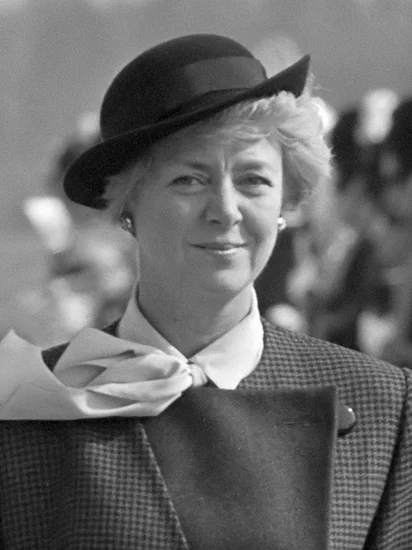
Vigdís Finnbogadóttir was born in Reykjavik, Iceland, destined to become a pioneering political leader. Her early interest in languages and literature shaped her educational and professional development throughout her youth.
She would later become the world’s first democratically elected female head of state, serving as Iceland’s President from 1980 to 1996. Her groundbreaking presidency inspired women’s political participation globally and established Iceland as a leader in gender equality.
1947 – Linda Bloodworth-Thomason Born
Linda Bloodworth-Thomason was born in Poplar Bluff, Missouri, beginning a life that would transform television entertainment. Her childhood in the American South provided inspiration for many of her later creative works.
She became one of television’s most successful writer-producers, creating hit shows like “Designing Women” and “Evening Shade.” Her work consistently featured strong Southern characters and progressive social themes that resonated with audiences nationwide.
1965 – Linda Perry Born

Linda Perry was born in Springfield, Massachusetts, showing early musical talent that would define her career. Her diverse ethnic background and unconventional upbringing influenced her distinctive artistic perspective and sound.
She achieved fame as lead singer of 4 Non Blondes before becoming one of the music industry’s most successful songwriter-producers. Perry has written hit songs for artists including Pink, Christina Aguilera, and Alicia Keys.
1967 – Dara Torres Born

Dara Torres was born in Beverly Hills, California, beginning a journey toward Olympic swimming excellence. Her early exposure to competitive swimming revealed exceptional natural talent and fierce competitive drive.
She became one of the most successful Olympic swimmers in American history, competing in five Olympic Games spanning 24 years. Torres won 12 Olympic medals and set numerous world records while inspiring athletes across all sports.
1972 – Arturo Gatti Born
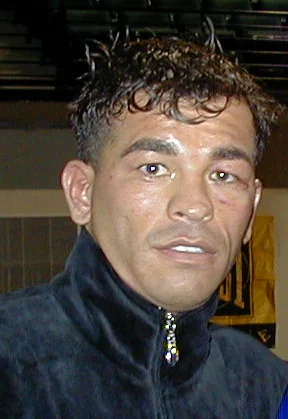
Arturo Gatti was born in Cassino, Italy, before immigrating to Canada where he developed his legendary boxing career. His immigrant background and working-class upbringing shaped his aggressive fighting style and determination.
He became one of boxing’s most beloved warriors, known for his incredible heart and spectacular fights. Gatti’s trilogy with Micky Ward is considered among the greatest boxing series in history, earning him induction into the International Boxing Hall of Fame.
1984 – Emma Watson Born

Emma Watson was born in Paris, France, to British parents, beginning a life that would span entertainment and activism. Her early childhood in France before moving to England provided her with multicultural perspectives and linguistic skills.
She achieved worldwide fame portraying Hermione Granger in the Harry Potter film series before becoming a prominent advocate for gender equality. Watson’s work as a UN Women Goodwill Ambassador has made her one of the most influential young activists globally.
Notable Deaths on April 15
1912 – Titanic Disaster Victims
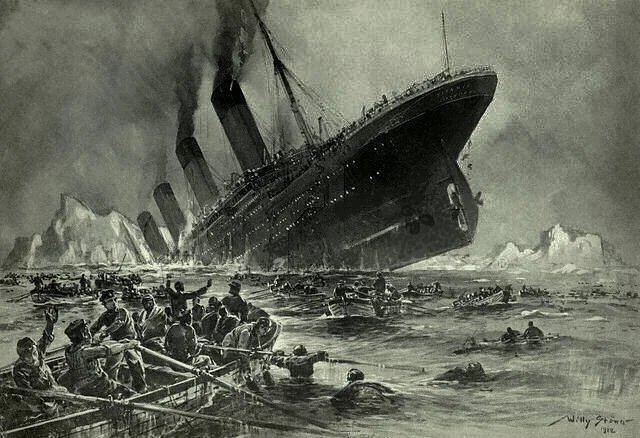
The RMS Titanic disaster claimed numerous prominent lives, including ship designer Thomas Andrews and wealthy businessman John Jacob Astor IV. These victims represented the era’s social elite, business leaders, and skilled professionals who perished in the North Atlantic.
Among the notable casualties were journalist William Thomas Stead, businessman Benjamin Guggenheim, and the ship’s captain Edward Smith. Their deaths shocked the world and highlighted how the disaster affected people from all walks of life.
1980 – Jean-Paul Sartre Dies

French philosopher Jean-Paul Sartre died in Paris, ending one of the most influential intellectual careers of the 20th century. His existentialist philosophy fundamentally shaped modern thought about human freedom, responsibility, and the meaning of existence.
Sartre’s literary works, philosophical writings, and political activism made him a central figure in post-war European culture. His rejection of the Nobel Prize in Literature demonstrated his commitment to intellectual independence and political principles.
1989 – Hu Yaobang Dies
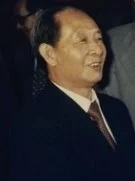
Former Chinese Communist Party General Secretary Hu Yaobang died in Beijing, triggering the massive pro-democracy protests in Tiananmen Square. His death provided the catalyst for the largest political demonstration in Chinese history since the Communist revolution.
Hu had been a reformist leader who advocated for political liberalization and greater individual freedoms within the Communist system. His passing became a rallying point for students and intellectuals demanding democratic reforms and government accountability.
1990 – Greta Garbo Dies

Swedish-American actress Greta Garbo died in New York City, ending one of cinema’s most mysterious and celebrated careers. Her legendary reclusiveness and artistic achievements made her one of the most iconic figures in film history.
Garbo’s performances in both silent and talking pictures established her as one of the greatest actresses of Hollywood’s Golden Age. Her famous desire to be “left alone” created an enduring mystique that continues to fascinate audiences decades after her death.
1998 – Pol Pot Dies
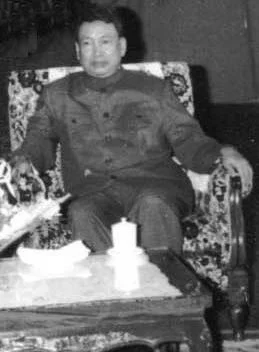
Cambodian dictator Pol Pot died under mysterious circumstances, ending the life of one of history’s most brutal tyrants. His Khmer Rouge regime was responsible for the deaths of approximately 1.5 to 2 million Cambodians through execution, starvation, and forced labor.
Pol Pot’s radical agrarian communist ideology led to the systematic destruction of Cambodian society and culture. His death came as he faced the possibility of being turned over to an international tribunal for crimes against humanity.
2001 – Joey Ramone Dies
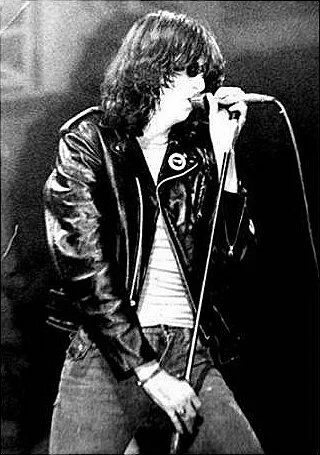
Joey Ramone, lead singer of the influential punk rock band the Ramones, died of lymphoma in New York City. His death marked the end of an era for punk rock and alternative music that had begun in the mid-1970s.
The Ramones’ simple, fast, and aggressive musical style helped create the punk rock movement and influenced countless musicians worldwide. Joey’s distinctive voice and stage presence made him an icon of rebellious youth culture and musical innovation.
Holidays and Observances on April 15
Jackie Robinson Day

Jackie Robinson Day commemorates the baseball legend’s breaking of the color barrier in Major League Baseball on April 15, 1947. All players, coaches, and managers in MLB wear Robinson’s retired number 42 during games played on this date.
The observance celebrates Robinson’s courage and the progress made in racial integration in professional sports. Educational programs and community events focus on his legacy and the ongoing fight for equality in athletics and society.
World Art Day
World Art Day celebrates artistic expression and creativity while promoting awareness of cultural diversity around the globe. The international observance encourages appreciation for various art forms and their role in human development and cultural understanding.
Art institutions worldwide organize special exhibitions, workshops, and educational programs on this date. The day emphasizes art’s power to bridge cultural divides and foster international cooperation through creative expression.
Tax Day
Tax Day marks the official deadline for filing individual income tax returns in the United States and Philippines. Americans must submit their annual tax forms to the Internal Revenue Service or request filing extensions by this date.
The deadline affects millions of taxpayers and generates significant economic activity as people complete their financial obligations. Tax preparation services experience their busiest day of the year, while government agencies process enormous volumes of returns and payments.
Day of the Sun
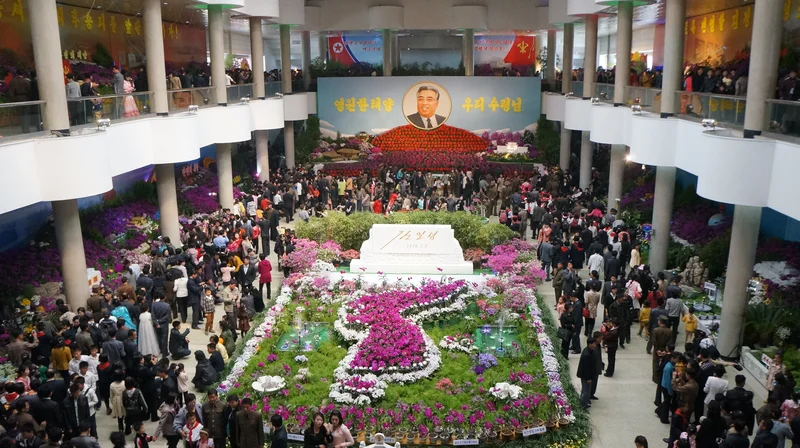
Day of the Sun serves as North Korea’s most important national holiday, celebrating the birth of the country’s founder Kim Il-sung. The observance includes elaborate ceremonies, cultural performances, and displays of national unity throughout the isolated nation.
The holiday reinforces the personality cult surrounding the Kim family dynasty and North Korea’s political ideology. Citizens participate in mandatory celebrations featuring mass gymnastics performances, military parades, and public demonstrations of loyalty to the regime.
